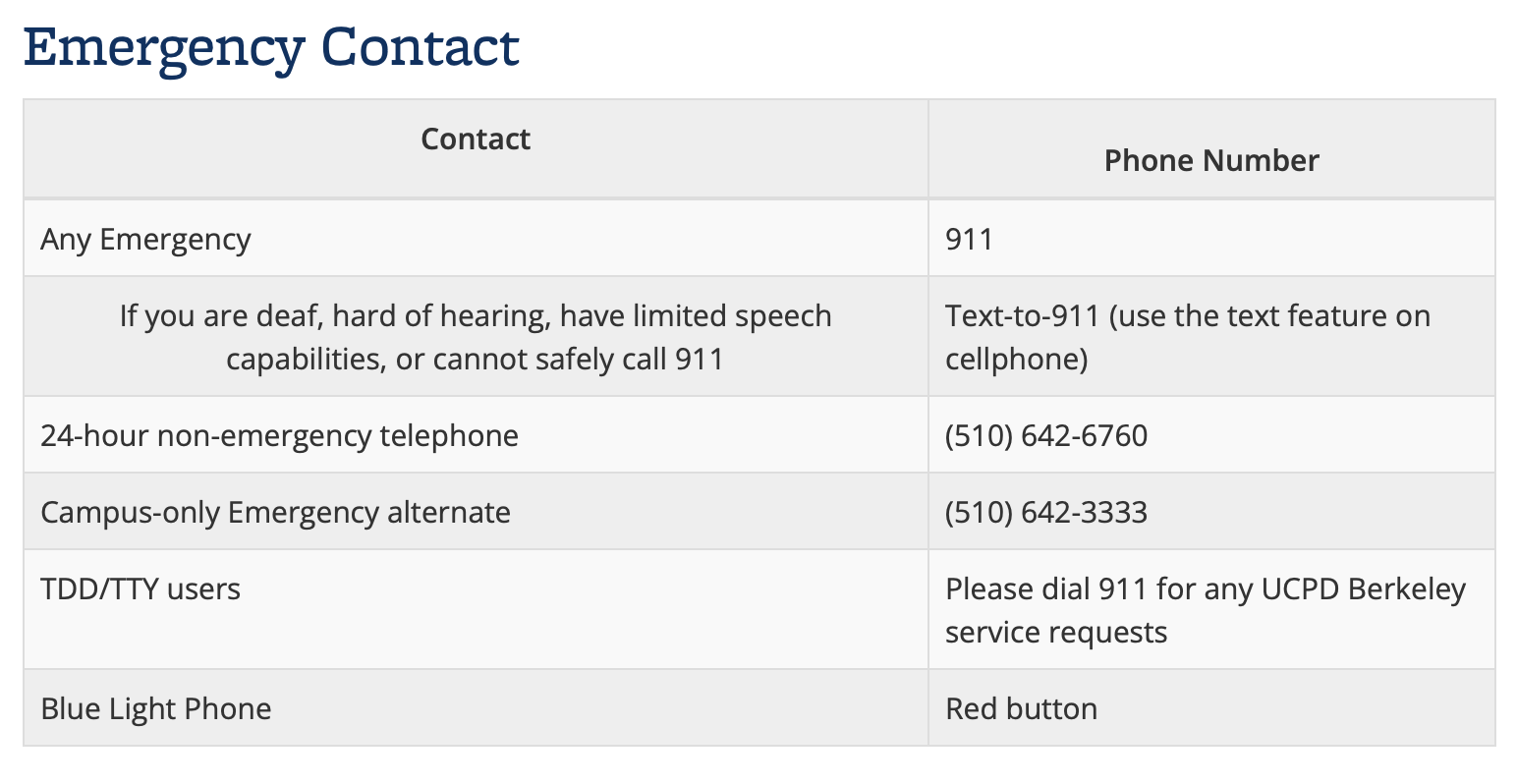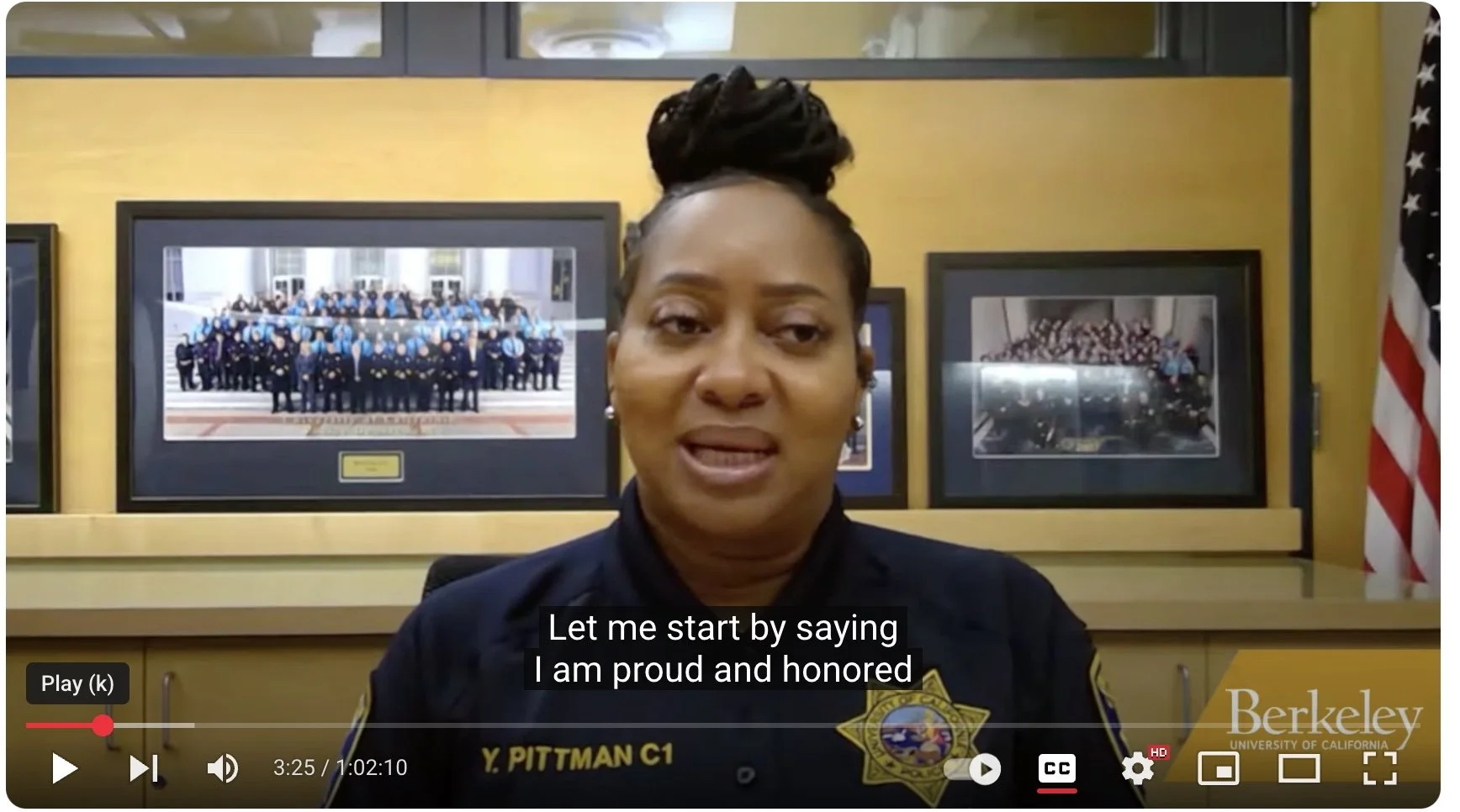Non-affiliates on campus, part 1: classrooms, libraries and other non-residential spaces
The recent report of a man with a knife in the Physics Reading Room highlights the issue of problematic non-affiliates on campus:
people who are not UC Berkeley students, faculty or staff trespassing in non-public spaces or engaging in disruptive, sometimes dangerous, behavior in campus buildings and outdoor areas generally open to the public. SafeBears continues to press UC Berkeley to do more to keep campus secure and conducive to learning.
But first, here are some safety tips for students. These best practices will be shared during orientation, but it can only help for parents to reinforce the message!
🔒 Please talk to your students about not propping open secured doors
🔒 Likewise, students should avoid allowing a person they don’t know to “tailgate” behind them through a secured door
📱 Encourage students to report suspicious activity on university property directly to campus police (known as UCPD) without delay
Call 911 – Yes, 911 works on campus and on all university property!
Students can also program this emergency-alternate number into their cell phones (510-642-3333) – it will connect to UCPD when dialed from university property (like a dorm)
If students feel unsafe making a call, texting 911 is also an option
🚶🏼➡️ Finally, if students want to report disruptive behavior after an incident has ended, they can call the UCPD non-emergency number (510-642-6760) or go in person to 1 Sproul Hall (basement).
Message from UPCD: “We understand some students may be hesitant to call police—but a timely call helps us respond more quickly and keep the campus community safe.” Learn more at UCPD’s Enhancing Safety webpage.
Source: University of California Police Department (UCPD)
These tips may seem obvious, but having been involved with SafeBears since my daughter arrived on campus two years ago, I can assure you they are real issues that continually crop up. For example, in the Physics Reading Room incident, which occurred on May 7, 2025, UCPD received a delayed report, contributing to officers being unable to locate the man when they responded (luckily, UCPD encountered the man later that night and he agreed to surrender his knife for destruction). And, according to the Physics building manager, students have been known to prop or tape the door to the reading room to bypass access control after the room is secured for the night at 8pm (though that was not an issue in this specific case, as the man apparently entered before 8pm).
While acknowledging that students have a role to play in protecting themselves and their classmates, it’s also evident that the university must do better in securing its spaces so that students, faculty and staff can safely and peacefully engage in university business – teaching, learning, researching and, ultimately, benefitting all of society.
Campus administration often falls back on the excuse that “as a public university we are generally open to the public.” While that’s true, it’s also true that UC Berkeley absolutely can close spaces to the public for operational, privacy and safety reasons. Again, the Physics Reading Room situation is instructive. Here’s what the Physics Department says on its website: “Access to the Physics Reading Room must be authorized by [__] in [__] Physics North or [__] in [__]. Please visit them or email if you desire access to this space.” Clearly, the Physics Department does not want random people off the street in its reading room. Yet, with the building and the room electronically locked only during overnight hours (between 8pm and 7am), and no one checking credentials, the room becomes a public space by default.
UC Berkeley Chief of Police Yogananda Pittman discusses campus safety in a Sept 2023 Campus Conversation (available on YouTube)
I review the UCPD daily crime log regularly, and most days there’s at least one instance of a non-affiliate making trouble on campus – as indicated by references to California penal code sections like 602 (trespassing) and 626 (authority to exclude disruptive individuals from school grounds). In a 2023 survey of UC Berkeley affiliates conducted by UCPD, non-affiliate behavior on campus was identified as an area of concern.
SafeBears has urged campus to lock more doors during the day, and/or provide more security guards checking IDs or watching for disruptive behavior. But, quite frankly, to date we’ve focused most of our efforts on improving security in the residence halls. The good news is that dorm security has improved A LOT since Cal parents began organizing around safety issues in the ‘21-’22 academic year. We’ll do a separate post on residence hall security soon. (Update: you can read that post here.)
If you’d like to help us advocate for better security in campus buildings, please email contact@safebears.org. As an all-volunteer organization, we’re only as effective as the quantity and quality of the people (like you) who step up to help. 💙 💛
Thanks for reading . . . and Go Bears! 🐻
- Victoria



